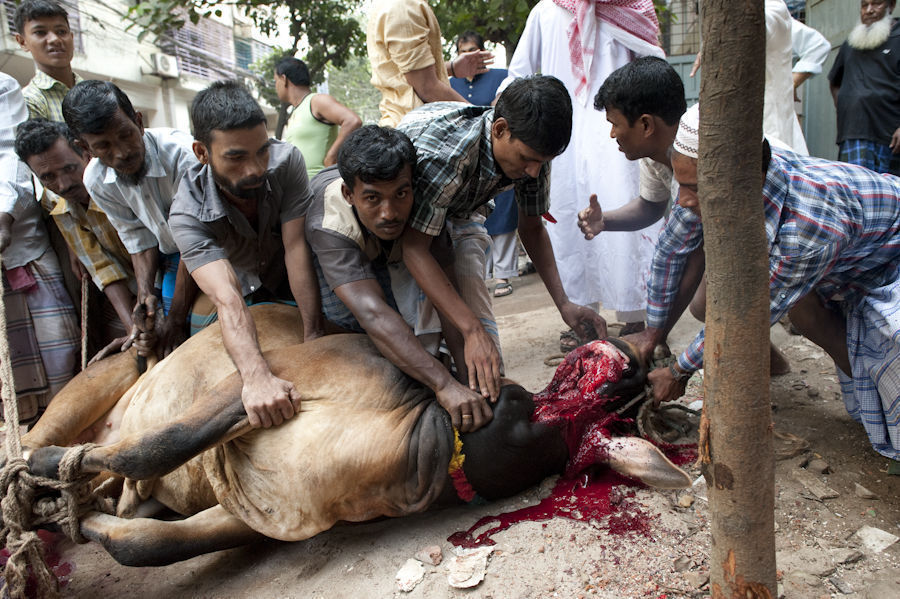As a Bangladeshi-Japanese student studying in the United States, I have learned to accept different cultures and values. When I traveled to Bangladesh two summers ago to see my relatives, I learned that every country suffers from issues that greatly affect its future generations. Gloria Randle Scott says: “The critical responsibility for the generation [I am] in is to help provide the shoulders, the direction, and the support for those generations who come behind.” Scott’s quote encouraged me to step out of my comfort zone to understand social and cultural differences. When I visited Bangladesh at eight years old, my relatives told me I must participate in a Muslim festival called eid.
â–º QUARTER FINALIST 2012 TEEN TRAVEL WRITING SCHOLARSHIP
I was overwhelmed with excitement, but what I didn’t realize was the callousness of eid. Before my eyes were dying cows and goats, moaning for help. I had to distribute the freshly warm beef to children my age with a forced smile on my face. It was not until I visited Bangladesh when I was sixteen did I fully understand the significance of eid.
However, I still remembered the ruthlessness of eid; thus, I was dreading the festival, even at sixteen. I looked around to see about a hundred children forming a line. I dug my hand into a bucket of beef and placed it in a plastic bag. With large grins on their faces, the children said “Dhonnobad,” which is “thank you” in Bengali. Surprisingly, a girl who somehow knew I spoke Japanese, said “Arigato” – “thank you”. I began to feel more connected with the children and the cause of the festival because the girl appreciated the small portion of meat that I initially dreaded to distribute. The burden on my shoulders disappeared; I genuinely smiled back and said, “Kicchu mone koro na” – “you’re welcome.” Later, I found out that at eid, the wealthy kill cows and goats to distribute to the poor. What I didn’t realize as an eight-year-old was this blatant illustration of the differences between social classes.
Before my experience in Bangladesh, I doubted that I would be able “to provide the shoulders, the direction, and the support for those generations who come behind.” By experiencing eid and interacting with Bangladeshi, my desire to make a difference in my community was renewed and made me aware of the world outside my home in Indianapolis. I realized that I live in a society where there is more than enough food, technology, and medicine, while in Bangladesh there are children craving for a handful of fresh beef. Therefore, the children I saw two summers ago motivated me to start the United Nation’s Children’s Fund at my high school. The trip also piqued my interest in medicine, since Bangladesh lacks a sufficient number of doctors. In college, I will continue to provide shoulders and support for future generations by participating in a premedical study-abroad program and starting UNICEF Club, so I can contribute to my college community, while making the difference on the world stage.
Dear Reader: This page may contain affiliate links which may earn a commission if you click through and make a purchase. Our independent journalism is not influenced by any advertiser or commercial initiative unless it is clearly marked as sponsored content. As travel products change, please be sure to reconfirm all details and stay up to date with current events to ensure a safe and successful trip.
